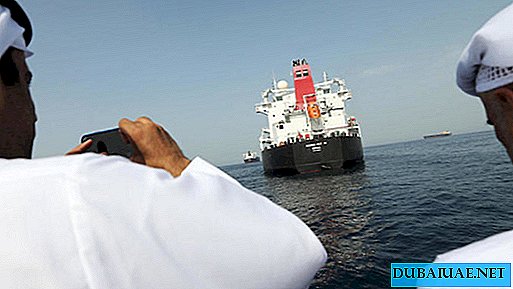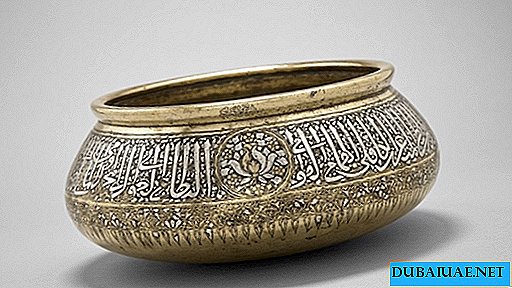CATS LIVE NEAR A MAN FOR A THOUSAND YEARS. They say that they can protect housing not only from harmful rodents, but also from evil spirits, being in such a way, home-guardians.
On the Arabian Peninsula, these representatives of the animal world have also always been neighbors of local residents, but they did not have the tradition of keeping them in the house.
 - When I arrived in Dubai 20 years ago, there was no Jumeirah district, Sheikh Zayed Highway, Dubai International Trade Center and the skyscraper area. At this place there was a small village with private houses, and the cats felt quite comfortable. When a large metropolis grew up here, the animals turned out to be street or, more simply, homeless, and the authorities began to exterminate them, forgetting that they are the same inhabitants of the Arabian desert as the Bedouins themselves, ”says Petra Miller, president of the Association of Amateur Society cats of the Middle East "(Middle East Cats Society).
- When I arrived in Dubai 20 years ago, there was no Jumeirah district, Sheikh Zayed Highway, Dubai International Trade Center and the skyscraper area. At this place there was a small village with private houses, and the cats felt quite comfortable. When a large metropolis grew up here, the animals turned out to be street or, more simply, homeless, and the authorities began to exterminate them, forgetting that they are the same inhabitants of the Arabian desert as the Bedouins themselves, ”says Petra Miller, president of the Association of Amateur Society cats of the Middle East "(Middle East Cats Society).
Unfortunately, traditions to build animal shelters in the United Arab Emirates have not yet been formed. Today, 161 (!) Cat lives in Petra’s house in the Mirdif district in Dubai. Among them are animals picked up on the street or simply thrown to her house.
“Seven years ago, I found a cat with a cut off ear in my garden. Thus, sanitary services mark those animals that have already undergone castration or sterilization. He was infected, and the cat died. Since then, I could no longer walk past suffering animals. And today - I can’t take them out, for example, to the desert, which is their natural habitat for them. They are accustomed to the house, and in the wild they simply will not survive, ”Petra notes.
Watching the pets she found, they found that they were not like any other known breed. And she decided to send pictures to the World Cat Federation in Germany. After a very short time, for the first time in 10 years, a new cat breed was registered - the Arabian Mau.
These animals are found only on the Arabian Peninsula - in the UAE, Qatar, Oman, Bahrain and Saudi Arabia. In fact, they are as much a part of the natural heritage of these countries as the famous local desert greyhounds - saluki, falcons, camels and Arabian horses. However, the conservation of these animals is not included in the list of priority tasks of the local government.
- In the Arab countries, a culture of keeping animals has not formed. When the expatriates leave the country, they simply throw their pets outside.
 The locals do the same, taking them on time for their children. We are going to conduct seminars in local schools to explain that "cats are not toys for children." And, of course, our main task is to open a special center where we can tell about the history of this breed and the life of cats today, as well as find new owners for them. People! Please remember that "we are responsible for those we tamed." And cats, even those so hardy and strong as the Arabian Mau, cannot survive without humans.
The locals do the same, taking them on time for their children. We are going to conduct seminars in local schools to explain that "cats are not toys for children." And, of course, our main task is to open a special center where we can tell about the history of this breed and the life of cats today, as well as find new owners for them. People! Please remember that "we are responsible for those we tamed." And cats, even those so hardy and strong as the Arabian Mau, cannot survive without humans.
So far, our plans to open the center are only on paper, and meanwhile, more than 150 cats live with me under one roof, so we are ready to accept any feasible help from everyone who wants it - be it food, filler for toilets. Help with care is also appreciated. And please pay attention to homeless kittens, we are ready to accept them, and then find them a new home. True, everyone who wants to take a kitten will have to join our society, our club of Arabian Mau breeders.
I must say that today this breed is very interested in Europe, and in the USA, and in Australia. “I hope that in their homeland, these cats will one day be appreciated,” said Petra Miller.









